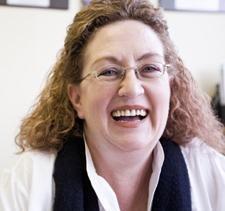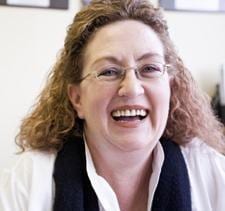With Pride Toronto’s (PT) annual general meeting set for Sept 23 (6:30pm, Church St Public School), Xtra looks at the issues that are most likely to become sticking points during the meeting. We’ve combed through news stories, email records, blog posts — even PT’s own Facebook page — and here’s what we found.
Click here to read all of Xtra‘s Pride Toronto coverage
1. Membership. PT has been tightlipped about who’s on the list, but this is what we know. The main way for queers (or allies) to become members of PT is by volunteering for eight hours. Therefore, the accuracy of the membership list is contingent on PT keeping thorough track of volunteer hours.
There are reports that PT’s automated system for tracking volunteer hours broke down during the festival, leaving organizers to track volunteer time on slips of paper. Others have suggested that PT’s decision to make individual volunteer shifts six hours each was intentional — few people were able to volunteer for the required eight hours, since they were either assigned one six-hour shift or made to volunteer 12 hours to qualify.
Outside of volunteering, there are two other ways people can become PT volunteers: attendance at three general meetings or appointment by the board. The first of these is off the table — PT hasn’t held three general meetings this year — but the latter is a spectre that hangs over proceedings, since it’s an easy way to stack the voters’ list with yea-sayers.
Nonmembers may be forbidden from asking questions, a situation that’s likely to inflame tensions rather than keep proceedings under control. There’s even the possibility that some nonmembers could be denied access to the meeting or kicked out during it, since co-chair Margaret Ngai is now describing the meeting as “a private members’ meeting.”
How questions about the membership are dealt with at the AGM will likely be the first test of PT’s mettle, and arguments could erupt even before the 6:30pm start time.
2. Financial information. The most immediate concern is PT’s 2010 deficit. On July 7, executive director Tracey Sandilands told Xtra the deficit would be at least $100,000. A week later, Sandilands predicted a deficit of $250,000 and suggested the outlook for 2011 was “bleak.” Those statements accompanied a number of layoffs; others involved with PT have mused that the deficit could be as high as $400,000.
Members should expect clear, audited financial information to be available at an AGM. However, PT has a spotty record in this regard. In 2009, audited financial data were not presented at the fall AGM and were instead released several months later. They showed a year of growth, even as the organization posted a $138,000 deficit.
Questions about the financial data provided are likely to dovetail with the third hot-button issue.
3. Accountability. For the first time in recent memory, queers marched on the offices of PT and demanded answers. In fact, this year, that strange scenario played out twice. There’s no doubt PT had a rough year, in terms of finances, community trust and public perception. Earlier this year, a co-chair of PT’s board of directors described the organization as “in a state of operational crisis.”

Pride Toronto executive director Tracey Sandilands (Jenna Wakani photo).
Click here to read all of Xtra‘s Pride Toronto 2010 coverage in one spot.
While nobody’s out for blood, questions about who is to blame and what’s to be done about it are likely to be on people’s minds during the proceedings. Will the board — responsible for both the March sign-vetting policy and the May ban on the term “Israeli apartheid” — issue a mea culpa, or will it stand by its decisions?
For instance, we know that executive director Tracey Sandilands attended key meetings with city officials where PT agreed to censor participants. What role did she play in the ultimate decision-making?
How the membership perceives the board’s accountability will be key to the issue of trust and will likely determine the tone of the rest of the meeting.
4. Election of directors. How the election is handled will have a big effect on how PT is perceived in the coming months. If the board of directors is able to deliver a fair, even-handed process, it will go a long way toward shoring up the organization’s credibility going forward.
Importantly, if the question of membership isn’t satisfactorily handled, folks will likely have a hard time accepting the results of an election, no matter the outcome.
Queers have raised a number of potential issues on the PT Facebook fan page. PT has tried to explain the election several ways, but the key issue appears to be whether there should be 10 directors or 12. All of PT’s public messaging suggests the former.
But others — including Martin Kuplens-Ewart, a board candidate and bylaw wonk — have pointed out that the organization’s bylaws seem to require them to fill the board to 12, not 10. That means that five of the six people running for the board will likely be elected.
Finally, there’s the matter of Chad Simon, who was parachuted onto the board a month before the AGM. “Whether they intend it or not, the message is ‘We’re stacking the board,’” board candidate David Demchuk said at the time. Shortly after Simon’s appointment was announced, footage surfaced of Simon in 2008 saying that he doesn’t support sex reassignment surgery. In an interview with Xtra on Sept 3, Simon promised to address the members at PT’s AGM.
[UPDATE, SEPT 22, 3PM: Simon won’t be speaking at the AGM, PT executive director Tracey Sandilands confirmed on Twitter.]
5. Brent Hawkes’ community consultation group. As part of PT’s decision to rescind its ban on the term “Israeli apartheid” in June, it announced that a seven-member panel would investigate the community’s concerns with Pride.
Initially, the Pride Coalition for Free Speech asked Hawkes’ committee to get its work done before the AGM, so the findings could be implemented immediately. It would have been a tall order if the committee had begun its work in June, when it was announced. Every indication at this point is that the committee’s report will not be ready until next year. Hawkes has promised to make a presentation at the AGM.
The main issue is whether PT board members will attempt to deflect criticism at the AGM by directing people to talk to Hawkes’ committee. But since the AGM is one of the few times when the membership can effect change at the organization directly, that’s not likely to hold much sway.
[UPDATE, SEPT 22, 3PM: Roughly three months after the committee was first publicized, Hawkes has announced the names of the members of the panel. More on this soon.]
Other considerations
General litigiousness. The ultimate boss at an AGM is the membership, not the board or the staff. Yet board members and staff usually have more information than the membership, meaning members’ concerns are often dismissed or explained away, rather than taken seriously. It will require an even-handed chair to make sure the meeting runs in both the spirit of the law and the text of PT’s bylaws.
Free speech. There’s every possibility that a motion will be introduced on the floor that either makes direct reference to PT’s spring censorship battles or to the artists’ contract, which forbids political expression from the stage. It could also be raised during questions put to board candidates, during the presentation of the financial reports or at another time. Who knows? The satirical Lesbian Billionaires for Censorship might even make an appearance.
Media. PT has already banned video recording of the meeting and declined Xtra’s offer to livestream the proceedings on xtra.ca. The media notice also asks members of the press to arrange interviews with board members, candidates and others before the meeting.
Blockorama and trans programming. These represented two big sticking points in the organization of the festival. After Blocko’s venue was moved for the third time in as many years, revolt caused PT to hold a public meeting to address concerns. When members of the trans community registered similar complaints, they were offered a meeting only after the festival — in August — a meeting that they publicly mused about cancelling, replacing it with a meeting during Hawkes’ panel consultations.


 Why you can trust Xtra
Why you can trust Xtra


